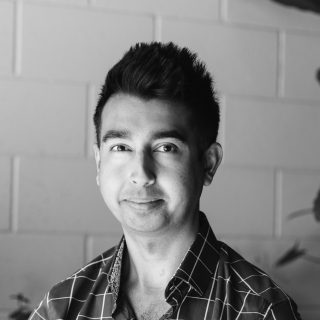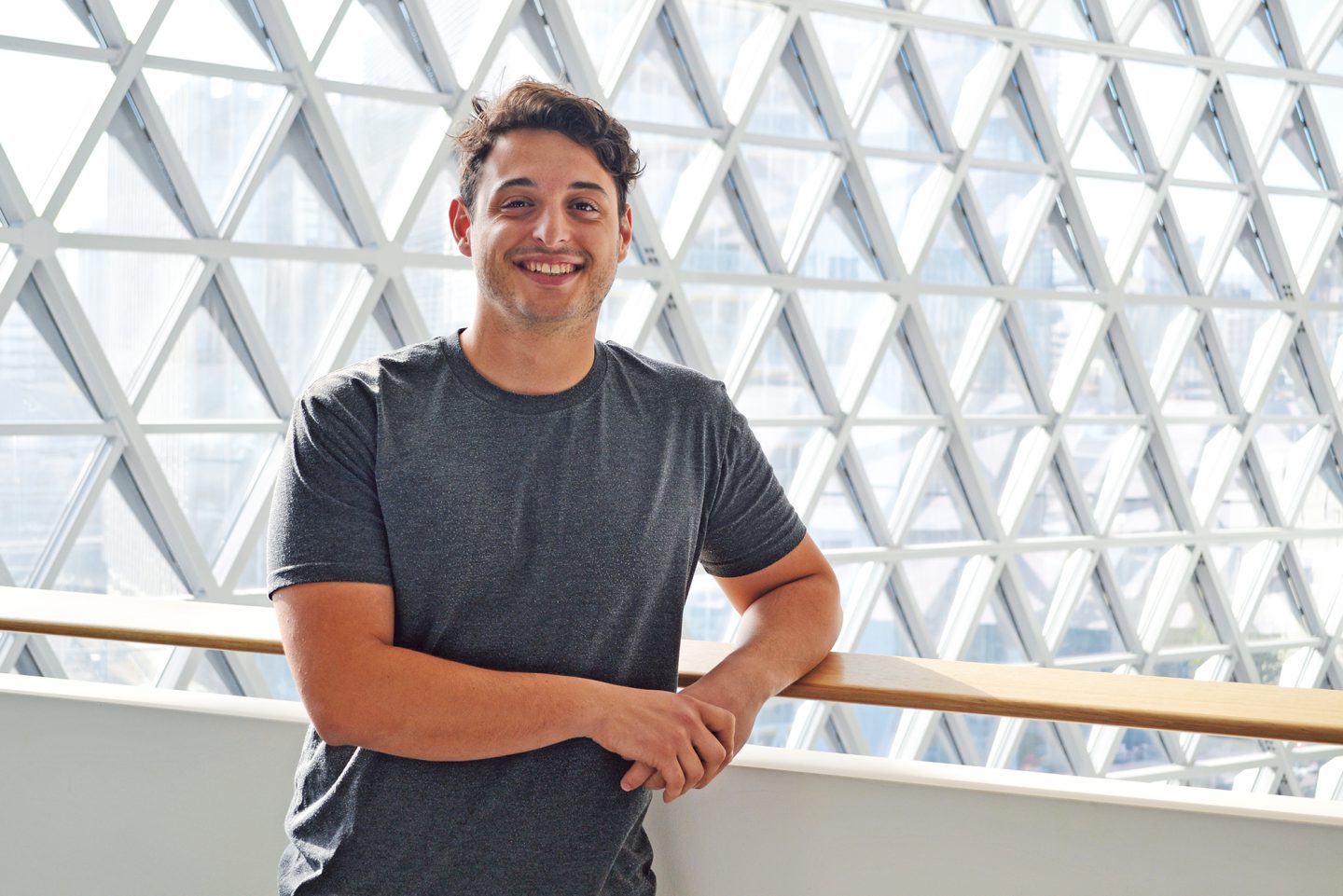
Meet the SAHMRI researcher rethinking mental health and wellbeing

An emerging scientific model examining the importance of mental wellbeing in our lives is debunking the conventional wisdom that defines mental health and mental illness as opposing ends of the same spectrum.
The new concept is being led by researchers in the Netherlands, where the majority of studies looking into distinctions between mental health and mental illness have been produced.
Researcher at the Wellbeing and Resilience Centre at SAHMRI, Matthew Iasiello, has been exploring mental health theories and techniques aimed at improving the wellbeing of South Australians as part of his PHD at Flinders University.
Iasiello also works as part of a project team at the centre that develops resilience training programs on mental health for various groups of people with several industry-based organisations across the state, which are analysed after completion.
Iasiello has received international interest in his research, and says his findings further supported the growing body of evidence suggesting mental health and mental illness, while correlated, are fundamentally different and that people can experience different levels of both.
“What this [old] model said is that if you imagine [a] bell shaped curve you’ve got illness at one end and health at the other, and what we’re saying is that those are two different continuums,” Iasiello says.
“Rather than being one number line it’s sort of like a cross where you’ve got one axis of mental illness and one axis of mental health and the big thing that suggests is that rather than saying you either are mentally ill or healthy, what this is saying is that you can have a mental illness and still have a high level of mental health.”
Iasiello has collaborated with mental health experts from the US for his PHD research at SAHMRI including sociology professor at Emory University in Atlanta, Doctor Corey Keyes, an internationally acclaimed expert on mental health and a leading pioneer of positive psychology.
Iasiello says Keyes’ extensive research on the prominence of a person’s wellbeing on the likelihood of developing mental illness assisted him in his own work.
“He showed that if you look at people who don’t have a mental illness but they have a low level of wellbeing and you follow them over ten years the people whose wellbeing was lowest, they’re eight times more likely to have developed a mental illness compared to those with a high level of wellbeing,” Iasiello says.
“He also showed that in that ten years if people’s wellbeing reduced they were at a higher risk of developing a mental illness – six times more likely – but the good news was that those who started at a low level and improved in that 10 years were not likely at all to be diagnosed with a mental illness so there’s a protective factor of wellbeing that he showed.”
Furthermore, Iasiello conducted a project with Keyes based on his own idea about recovery in mental health. Iasiello says they discovered a link between improving wellbeing and recovering from mental illness.
“What we’ve shown is that in the same way there’s a protective factor of wellbeing there’s also a recovery factor of wellbeing, so we showed that people with a mental illness with a low level of wellbeing if they were to improve their level of wellbeing t10 years later, they were up to 20 times more likely to have recovered from that illness compared to those that stayed with a low level of wellbeing across that time, so that’s a fantastic result.”
Mental illness is a major issue nationally, with the Australian Bureau of Statistics’ National Survey on Mental Health and Wellbeing from 2007 indicating 20 per cent of the country’s population is estimated to be suffering from a mental health disorder. Moreover, the survey estimated 45 per cent of Australians had experienced a mental health disorder in their lifetime. It was the last survey conducted by the ABS on mental health and wellbeing.
Iasiello says wellbeing should be integrated as a major part of the Australian health care system’s approach to mental health care together with existing services and treatments to improve patient results.
“The point that we’re making here is that at the moment we don’t put anything in our treatment models that are specifically focused on improving wellbeing,” Iasiello says. Potentially, there’s this new avenue of treatments which could be used to complement what we’re currently doing to improve someone’s chance of recovering from a mental illness. They’re all out there, they’re fairly freely available and they go hand-in-hand with the things we’re already doing.”
Most recently, Iasiello has presented his research at the World Congress for Positive Psychology in Melbourne in July and previously at the International Wellbeing and Public Policy Conference in New Zealand late last year.
Iasiello will also be presenting at two other international conferences next month including the Australasian Mental Health Outcomes and Information Conference in New Zealand and at the International Society for Affective Disorders in London, where he will work on a project with mental health experts from the University of Twente in the Netherlands to investigate better ways of measuring wellbeing.
